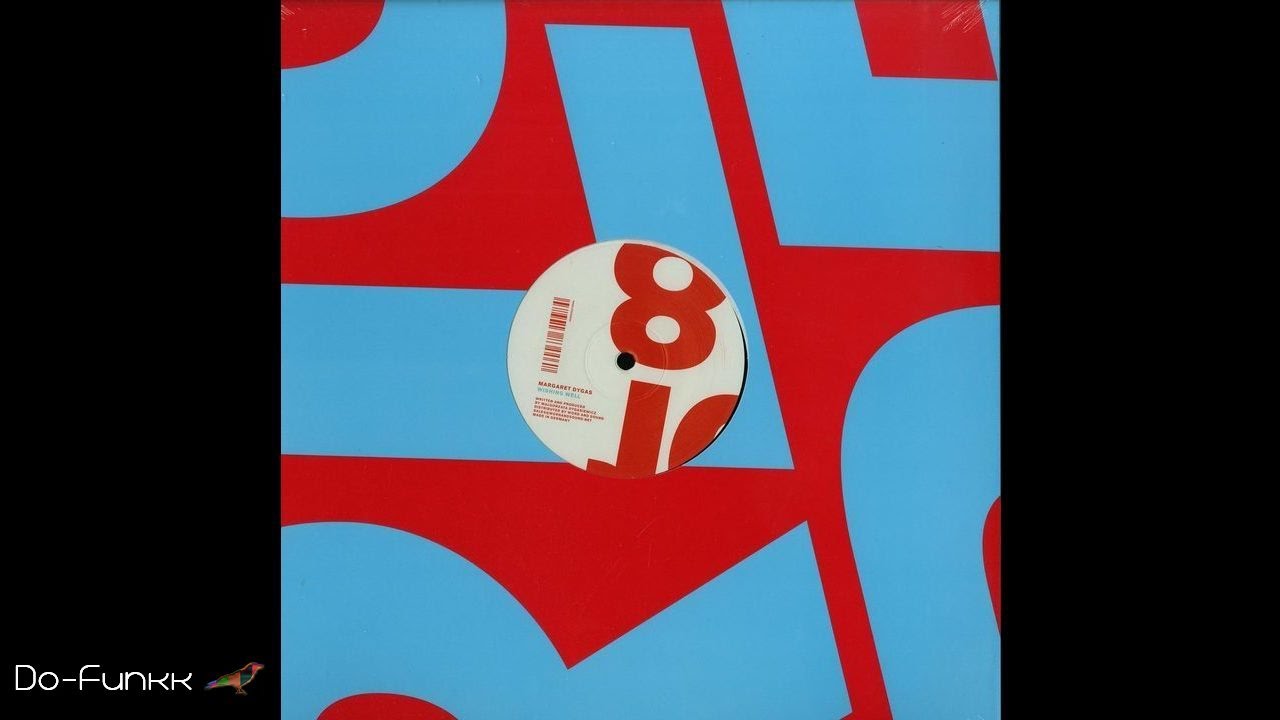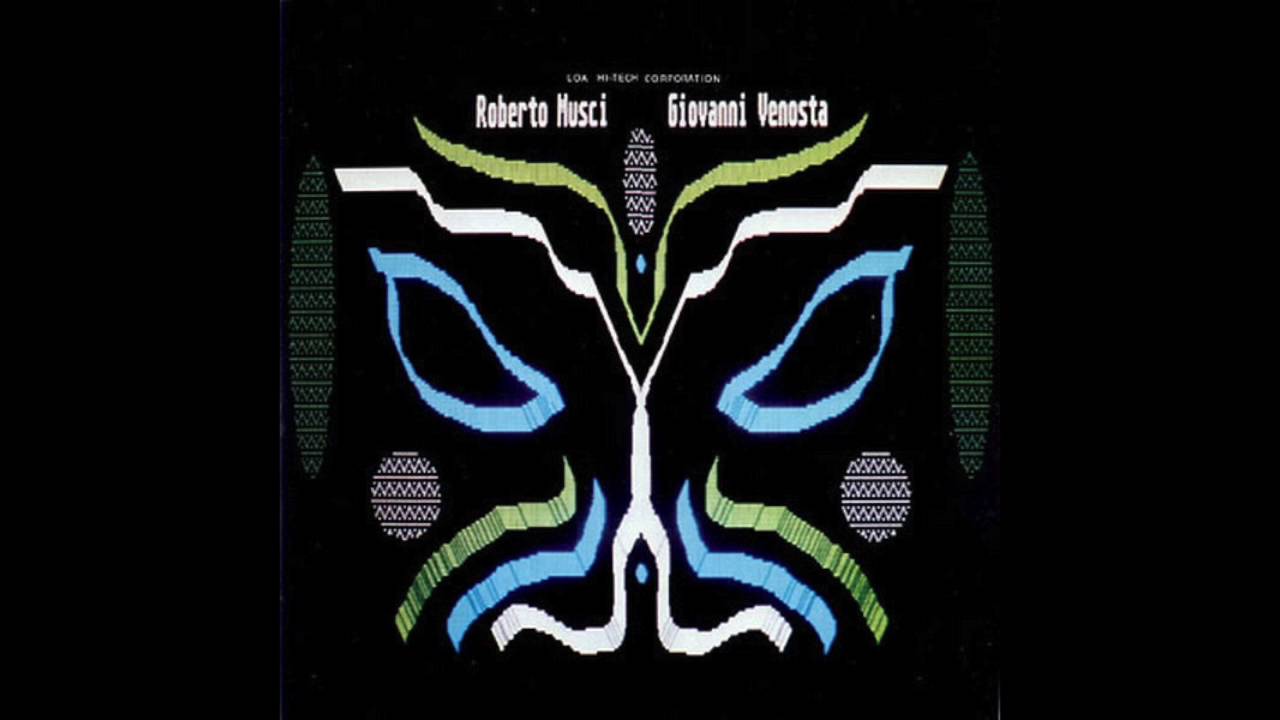Lena Willikens
2016, in electronic music terms, seemed to be permeated by a lot of handwringing over "our culture", a pair of words that I heard bandied around so often in these 12 months, and no doubt by myself at times also, that it began to lose all meaning. It was particularly frustrating that the frequency of its usage by many seemed to refer to a very specific sub-section of what ‘club culture’ is, that of a techno scene that is undeniably dominated by bookings that still aren’t diverse enough.
There are some great parties and promoters offering viable alternatives to that across the UK at the moment and those in the know will know where to find them. Talk of this though often throws up a strange dilemma of whether we point more and more people in the direction of these promoters or simply leave some people behind in order to create new alternatives away from the established club hierarchy of, there’s those two words again, ‘our culture’. It’s naturally understandable that many are tired having spent aeons calling upon clubs and promoters to diversify booking policies and are worried that certain parts of the scene are being opened up more and more to people that do not respect the history of the music, and everything that surrounds it, that they are going to clubs to hear. Put simply, sometimes people just want to go to clubs to meet people or get fucked, and so why not create alternatives away from that where the focus is on music and on different concepts aside from those very simple expectations of a night mentioned above?
However, there’s something somewhat unfortunate about the divide that this could create – do some people miss out on education or important experiences because of this and do we fully make the all-important step towards realising the desire for widespread, more diverse line-ups and crowds? What’s more, it could be argued that there’s an element of purism wrapped up in this dilemma if again we come back to the idea of some people’s expectations from a night out being more valid than other people’s. It’s something I’ve been thinking about a lot this year as several great parties have begun in London and as more clubs have closed down also. In some corners of ‘club culture’, arguably mostly from those who hold the bulk of the ability to make drastic changes and set examples to smaller businesses or promoters, there’s a seeming unwillingness to think more deeply about where our individual or collective roles sit within the scene. Naturally some people need to be doing more than others in order to tackle the issues that we face still of all-male line-ups or of non-binary people feeling uncomfortable in certain club spaces, among other things.
The reopening of fabric was hailed immediately as a great triumph, and indeed it was hugely encouraging for the people who had been made unemployed by its closure, but the measures under which it is reopening still set a dangerous precedent for clubbing in London and the UK going forward as we know. The announcement earlier this month that the club would be reducing their weekly fabriclive nights, those which had the most diverse bookings certainly musically and racially at the club, to just one night a month sat very uneasily. Hidden amongst some carefully written PR about the ‘expertly curated’ house and techno line-ups which would replace those nights was a reminder of what we continue to be up against with the decision having very possibly come at the suggestion of Islington Council and the Metropolitan Police under the conditions of fabric’s reopening. The move strips the club of its dedicated programme of drum & bass, dubstep and grime nights organised by various labels and collectives within those scenes. With fabric seemingly committed to lobbying for licensing law changes for all UK venues with money raised by their support fund, this should ideally see some positive change on that front in 2017. With so much excess sitting in the pot though, it would be encouraging to soon see an open discussion on how this can further help those in need right now or in the future take place. Some of this money could be hugely helpful to a wealth of causes – one of which I will mention shortly – and also to supporting new promoters attempting to enact more radical ideas as well as to other small cultural organisations which are currently facing an onslaught of issues in the age of Tory government.
A whole positive club scene still exists across the UK though even despite the continued doom and gloom of reports on clubs closures and if you look hard enough, you will hopefully find the right party for you. It’s important that none of the mourning for venues past should do down the important work that many great, forward-thinking promoters are continuing to put in. The tragic Oakland warehouse fire recently showed us the importance of club spaces that sit outside the established conventions of venues within ‘our culture’ and these kinds of spaces offer an invaluable refuge for people that do not feel comfortable in or represented by those traditional structures. If you can donate to the relief fund to support the victims of the fire, you can do so here.
While that rounds up my thoughts for electronic music in 2016, below you can read on for a handful of picks of releases and mixes that I was unable to feature in previous issues of the column this year for whatever reason or that were simply released too late to be included before. I hoped that this would be more insightful than me going back over the numerous records that have already featured in these columns over the last 12 months. Also below, you can find a pick of my five favourite labels of 2016, in no particular order. Thanks for reading this year and see you in 2017.
Lena Willikens – Mix For Charles Drakeford, NTS (02/12/16)
Having emerged in the last couple of years as one of the key selectors of Düsseldorf’s famed Salons des Amateurs, a club which is lauded for its residents’ commitment to breaking rules and playing whatever the hell they want, Lena Willikens has quickly made a name for herself as a player of sleazy, sludgy body music – someone as content throwing it down at 100BPM as she is drawing for more fast-paced acidic electro. A late entrant into my highlights of the year, with this mix having aired a couple of weeks ago, the number of repeat listens it has warranted since then sure enough leaves me in no doubt I will continue to return to this hour of music for some time to come.
Starting around 30 minutes into the embedded SoundCloud upload just above, this is a more esoteric collection of tracks from Lena than a number of other mixes of hers – and that’s saying something for a DJ who is continually unafraid to challenge audiences and dig into the fringes of what might be considered traditional club fare. Narrations of UFO sightings drift around the mix’s intro as she flits between gamelan-influenced pieces by Pauline Oliveros and Kebyar Leyak. A piece of music from a recent Offen-released offering by Rex Ilusivii pushes proceedings out into the cosmos, gloriously strange and captivating. Willikens continues on this tangent for much of the mix’s hour, combining early electronics with field recordings and beautifully bizarre music from a number of peers.
Japan Blues – Sells His Record Collection
(Japan Blues)
Another late entrant to the year’s best comes via the debut album from Howard Williams, otherwise known as NTS regular Japan Blues. That title becomes immediately clear to any Discogs diggers of expensive, out-of-print Japanese records listening through the album with samples of music from producer Hiroshi Satoh and duo Inoyama Land instantly having stood out to me on first listen. On his past two releases as Japan Blues, Williams has used the loosely-defined edit format to put old records into the hands of people that they might not dream of ever being able to afford, but on this album he uses this structure to create something that feels wholly new.
By stitching together various different records taken from across his collection, differing in style or era, he showcases the rich depth of the music by which he is so obsessed. Inoyama Land’s ‘Glass Chaim’ sits alongside a stern Japanese spoken word sample on ‘Everything Passes’ while ‘The Sun Goddess Steps Out In Old Asakusa’ stretches out across almost 12 breathtaking minutes bringing together the contrasting elements of Williams’ record collection into something that is far more than the sum of its parts. It seems pointless trying to describe it though when Williams has already done it so excellently himself in the accompanying announcement text reading: “The inspiration behind it was an imaginary geisha opium den. It just went downhill from there.” Arriving so late in the year, it would be easy for this album to get buried under all the end-of-year summations, but it sure stands out as one of the year’s finest LPs with Williams channeling the spirit of his regular NTS slot into a captivating collection of six tracks.
Conor Thomas – The Smoking Man
(MBE)
It may seem like I’m cheating a little here by adding another late arrival in 2016’s releases to this list but the second tape in the MBE series – following on from Beatrice Dillon’s inaugural effort in 2015 – is a dizzying tribute to a series of free parties held in Manchester between 2002 and 2006, the mix put together by The Death Of Rave label head Conor Thomas. Made up of records that were played at those parties or that Thomas played a lot himself, it captures his early experiences as somebody that went to illegal warehouse parties upon moving to Manchester in 2002.
All of the music featured was recorded between the years of 1993 and 2004 with Thomas throwing together grin-inducing hardcore with distinctly dark jungle, stating himself that he had intended to pay closest attention to the more menacing “darkside” material emerging within the jungle and drum and bass scenes in the late 1990s. The Smoking Man offers an insight into a time and scene that many listening won’t have been able to experience at the time, and while I always hope to sidestep nostalgia for a scene of which I was never a part, it’s hard not to be swept up in Thomas’ selections and his sheer unadulterated love for this music and the parties that inspired him going forward.
Sam Kidel – Disruptive Muzak
(The Death Of Rave)
Casting the net a little further back in the year, though following on somewhat suitably from Conor Thomas’ mixtape, is Sam Kidel’s Disruptive Muzak, having seen release via Thomas’ The Death Of Rave imprint. Across just over 20 minutes on the record’s lead cut, Young Echo’s Sam Kidel turns the tables on the cycle of never-ending customer service calls placed on hold, playing his interpretation of the kind of ‘muzak’ often piped down the phone to unamused customers – in this case a new age piece that wouldn’t sound out of place during a spa treatment – to bemused callcentre staff.
The results sit somewhere between amusing, yet slightly cruel prank and engrossing sound art. As countless members of staff answer the phone and often go through the same protocol of greeting and offering their services to the caller, a deep tedium sets in that sits in stark opposition to what can be heard underneath these voices – that holistic, ambient assortment of sounds that constitute the ‘muzak’ element of the piece. For these reasons, it’s hard to know where to sit with Disruptive Muzak and it’s understandable that it might not be for everyone. Some people might simply find humour in the repeated “hellos” of the various featured voices as they realise nobody else is on the line – and for those people the accompanying second piece of music which solely features the instrumental might provide them some further laughs. Others though may look at the piece at a highly subversive, experimental piece of sound art that highlights, at its most base level, the monotonous dystopia of capitalism represented here by the thousands of callcentres based up and down the UK.
HELM – ‘Olympic Mess (Beatrice Dillon Remix)’
(PAN)
It’s hard to argue with pointing towards Beatrice Dillon if you’re looking to sum up the best electronic music of 2016 with one person. She followed her 2015 album alongside Rupert Clervaux with a further collaboration in Two Changes which saw the two turn in a pair of extended percussion workouts stripping back 2015’s Studies I-XVII For Samplers And Percussion ever further employing eerie electronics, field recordings, vibraphone, bass guitar and a handful of other tools to craft two trippy jaunts into their improvisatory process. ‘Curl’ followed on Alien Jams, a track which I described in this column at the time of release as further honing in on her ability to put across an effortless looseness in her creative process “in that nothing sounds too over-rehearsed or polished”. At the tail end of the year, she also shared ‘Can I Change My Mind?’ via the recently established Boomkat Editions label, with the 13-minute piece tracing back to those experimentations with Clervaux mentioned above, sounding like minimal techno in a way that you’ve never heard it before. Her Wichelroede cassette mix which arrived at the top of the year too was a demonstration of why she has been garnering so many fans as a DJ this year, while her NTS shows always throw up all kinds of gems new and old.
Getting to her finest work this year, her remix for HELM’s ‘Olympic Mess’, released late summer on PAN, was a relatively dance floor-conscious affair. Present is the expert percussion work found across much of her work, beefed up slightly this time, as she loops the lead synth line from her source material across the remix’s eight minutes, slowly giving rise to a continuous, luminous pad which comes into focus from the half-way mark. The track’s other melodic elements fray and disintegrat from here forth – it’s a track which provided a much-needed moment of relief and reflection amongst other club-ready cuts while on a visit to Amsterdam’s De School in the summer.
2016’s Best Labels
Timedance
I already alluded to this in last month’s edition of the column but in case you needed reminding, 2016 was Timedance’s year. In Bruce’s ‘I’m Alright Mate’ and Laksa’s ‘Contrasts’, they released two of the most in-demand, searing club bangers of the last 18 months or so, with label head Batu building up a strong set of releases from peers such as the aforementioned producers as well as Lurka and Ploy. Timedance is offering a forward-thinking take on UK techno and long may it continue in 2017.
The Trilogy Tapes
It’s not a new name to most but Will Bankhead’s The Trilogy Tapes label arguably had its finest year yet in 2016. It gave us two standout records from one of the finest producers operating today in Call Super, under his Ondo Fudd and Elmo Crumb guises, a new alias from Blawan who continued to hone in on his brand of streamlined, haunting modular techno, far out drone-laden pieces from Carl Gari & Abdullah Miniawy and more saturated, breakbeat-referencing goodness from Rezzett. All of this was, as ever, brought together under the excellent artistic direction of label head Will Bankhead.
Perlon
Perlon gave us six new records in 2016 and played with what we’ve come to expect from the forerunners of minimal techno. Fumiya Tanaka’s You Find The Key album had everything that might please the Perlon faithful in its loop-driven qualities while Spacetravel’s Dancing Therapy added bizarro melodies amongst the shuffling hi-hats of much past Perlon output. The two highlights of their calendar came in the form of records from Margaret Dygas and Maayan Nidam. The former draws lines with the sub-bass so eminent of some of the best UK club music of this millennium while the latter flirts in parts with electro and again bears some comparisons with the bass-driven qualities of much UK club music in the last decade, particularly in title track ‘Deep Under Sobriety Regime’.
Music From Memory
Music From Memory kept up a very impressively frequent run of releases in 2016, particularly noteworthy given their trade in digging up older releases for reissue – a process which can no doubt throw up all kinds of complications. As well as reissues of material from Suso Sáiz and Dip In The Pool, the sure highlight of their year was in a compilation collecting together old material from Roberto Musci, entitled Tower Of Silence. As I wrote of the release a couple of months ago on these pages, “Tower Of Silence serves as a tantalising introduction to Musci’s work much like past reissues of music by Gigi Masin, Suso Sáiz and others on MFM have done also.
UIQ
Lee Gamble founded UIQ towards the end of last year and has set out building an impressive roster of artists ever since exploring and experimenting the possibilities of sound design inside and outside traditional dance floor structures. One of the highlights of the year from the label came via Lanark Artefax’s Glasz EP which I featured in this column at the time of release thusly: “‘Glasz’ is built around a beat reminiscent of hip-hop and, dare I say it, trap, ballroom-esque vocal samples pinging around the drums. Opener ‘All That Is Solid Melts Into Air’ calls to mind Autechre at their most banging and direct – stark, moody and yet simultaneously melodic.”





